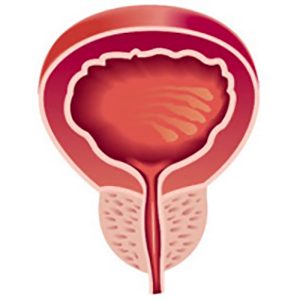 Smart Citations
Smart CitationsSee how this article has been cited at scite.ai
scite shows how a scientific paper has been cited by providing the context of the citation, a classification describing whether it supports, mentions, or contrasts the cited claim, and a label indicating in which section the citation was made.
Evaluation of Rezum therapy as a minimally invasive modality for management of Benign Prostatic Hyperplasia: A prospective observational study
Objective: To evaluate safety and efficacy of Rezum therapy as a minimally invasive modality for management of benign prostatic hyperplasia in patients with prostate volume < 80cc and those with prostate volume > 80cc. Methods: Between June 2020 and February 2023, A total of 98 patients diagnosed with BPH and managed by Rezum were included in this study. Patients were divided based on their prostate volume of either less than 80 cc or greater than 80 cc. We evaluated several parameters related to their condition, including prostate volume, post-voiding residual (PVR) before and after surgery, number of treatments received, maximum urine flow rate (Qmax) before and after surgery and mean follow- up periods. Results: The mean age was 68 years (SD 11.2). The median prostatic volume was 62 cc (IQR 41, 17). A maximum of 9 treatments were administered. Six months was determined to be the average post-operative follow-up period (IQR: 3.5-7.2). The mean preoperative total PSA was 2.7 (IQR 1, 2), preoperative mean PVR was 79.8 cm3, preoperative mean Qmax was 8.2 ml/s (IQR 4.7-10.5), and median post-operative days until catheter removal was four days (IQR 3,1). Post-operative PVR was 24.7 cm3 (IQR 18.2, 29.4) and the mean post-operative Qmax was 18.3 ml/s (SD 6.3). Qmax levels significantly increased, by an average of 8.2 ml/s (SD 7.13) (p < 0.001). Similarly, a decrease of average PVR of 97.28 cm3 (SD 95.85) (p < 0.001) was detected, which is a substantial reduction. Between prostates less 80cc and those over 80cc, there were no appreciable differences in Qmax or PVR (p-values: 0.435 and 0.431, respectively). Conclusions: From our study, we conclude that Rezum water vapor thermal therapy, as a minimally invasive modality, is an effective and safe surgical option for management of benign prostatic hyperplasia of men with moderate to severe lower urinary tract symptoms (LUTS). This procedure has been shown to be effective in patients with varying larger prostate volumes.
Downloads
How to Cite

This work is licensed under a Creative Commons Attribution-NonCommercial 4.0 International License.
PAGEPress has chosen to apply the Creative Commons Attribution NonCommercial 4.0 International License (CC BY-NC 4.0) to all manuscripts to be published.

 https://doi.org/10.4081/aiua.2023.12026
https://doi.org/10.4081/aiua.2023.12026





